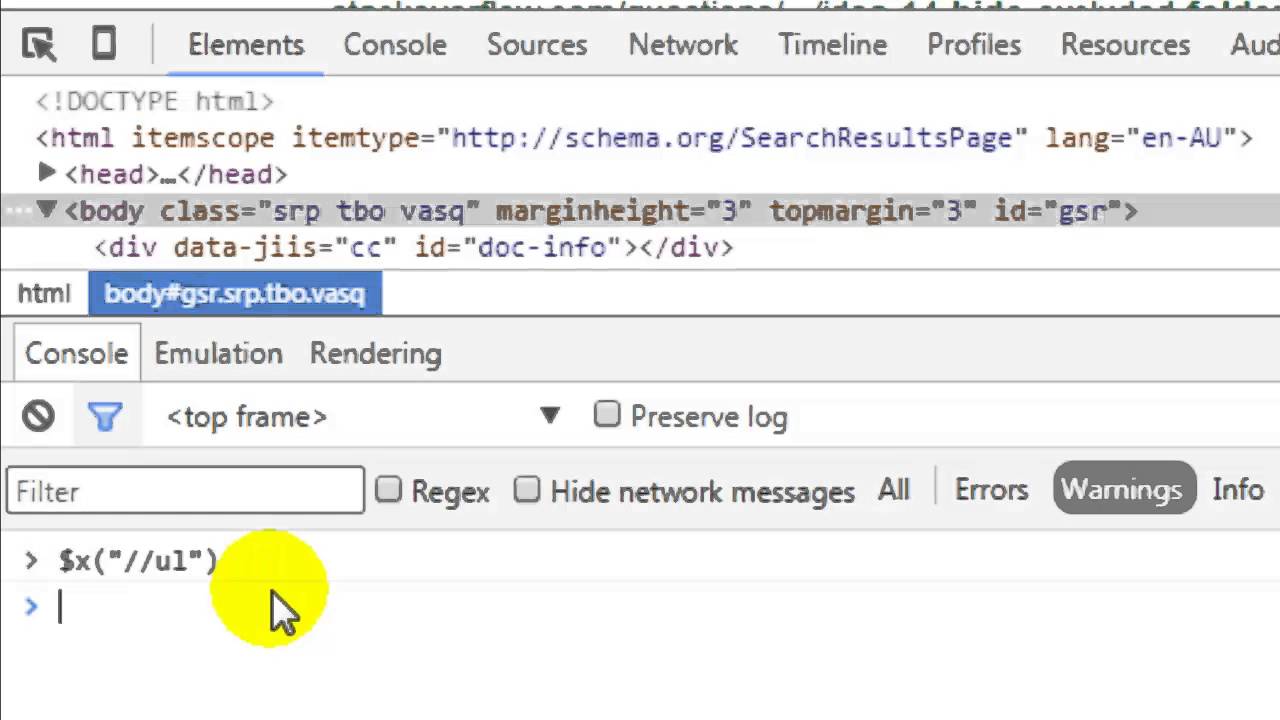Introduction
When it comes to browsing the web, the choice of a browser plays a crucial role in determining the overall user experience. From lightning-fast page loading to seamless multimedia playback, browsers have evolved to offer a myriad of features. However, one question that often arises is, "What browser runs Java?"
Java, a versatile and widely-used programming language, has been an integral part of the web for decades. It enables the creation of interactive and dynamic web content, making it an essential component for various online applications and services. As such, the compatibility of Java with different browsers is a topic of significant interest for users and developers alike.
In this comprehensive guide, we will delve into the intricate relationship between Java and web browsers. We will explore the browsers that support Java, shed light on how to enable Java in different browsers, and provide insights into the evolving landscape of web technologies. By the end of this journey, you will have a clear understanding of which browsers are equipped to harness the power of Java, empowering you to make informed decisions when it comes to your online activities. So, let's embark on this enlightening exploration of Java and browsers, unraveling the mysteries of compatibility and performance.
Understanding Java and Browsers
Java, a powerful and versatile programming language, has been an integral part of the web ecosystem for decades. It was designed to be platform-independent, allowing developers to write code that can run on any device with a Java Virtual Machine (JVM). This portability has made Java a popular choice for building a wide range of applications, from enterprise software to mobile apps and web-based tools.
When it comes to web browsers, their primary function is to render and display web content, including text, images, videos, and interactive elements. Browsers also support various web technologies, such as HTML, CSS, and JavaScript, which are essential for creating dynamic and engaging web experiences. However, the integration of Java into the browsing experience adds another layer of functionality and interactivity.
Java applets, small applications written in Java, were once a common sight on the web. They allowed developers to embed interactive content directly into web pages, enabling features such as games, multimedia, and data visualization. However, with the evolution of web standards and security concerns, support for Java applets has dwindled in modern browsers.
Despite the decline of Java applets, Java remains relevant in web development. JavaServer Pages (JSP) and JavaServer Faces (JSF) are used to create dynamic web pages, while Java applets have been largely replaced by technologies such as HTML5, CSS3, and JavaScript. Additionally, Java is widely employed in server-side applications, powering the backend of many websites and web services.
In the context of browsers, the support for Java varies across different platforms and versions. Some browsers have built-in support for Java, while others require additional plugins or extensions to enable Java functionality. As the web continues to evolve, the role of Java in browsers is constantly being redefined, with a focus on security, performance, and compatibility with modern web standards.
Understanding the relationship between Java and browsers is essential for both developers and end users. It provides insights into the capabilities of different browsers, the impact of Java on web content, and the ongoing evolution of web technologies. By gaining a deeper understanding of Java and its interaction with browsers, individuals can make informed decisions when it comes to selecting a browser for their online activities.
Browsers that Support Java
In the ever-evolving landscape of web browsers, the support for Java has undergone significant changes over the years. As Java applets have become less prevalent and security concerns have prompted adjustments in browser functionality, the landscape of Java support in browsers has shifted. Let's explore the browsers that currently support Java and the mechanisms through which Java can be enabled for a seamless browsing experience.
1. Internet Explorer
Historically, Internet Explorer has been one of the primary browsers with robust support for Java. It has long been a popular choice for running Java applets and applications. However, with the decline of Java applets and the emergence of modern web standards, the relevance of Java in Internet Explorer has diminished. As a result, the use of Java in Internet Explorer is now limited to specific legacy applications and scenarios.
2. Mozilla Firefox
Mozilla Firefox has been a stalwart supporter of Java, offering extensive compatibility and functionality for Java-based content. However, in line with industry trends and security considerations, Firefox has gradually phased out support for Java applets. While Java applications can still be run in Firefox, users may encounter prompts to enable Java or install additional plugins to ensure seamless execution.
3. Google Chrome
Google Chrome, known for its speed and modern web capabilities, has taken a cautious approach to Java support. In recent years, Chrome has tightened its security measures and deprecated support for NPAPI (Netscape Plugin Application Programming Interface), the technology that enabled Java applets in the browser. As a result, running Java content in Chrome often requires the use of specific extensions or adjustments to browser settings.
4. Safari
Safari, the default browser for Apple devices, has traditionally offered support for Java. However, similar to other modern browsers, Safari has moved away from Java applet support in favor of embracing newer web technologies. Users may need to enable Java through the browser settings or utilize third-party extensions to interact with Java-based content within Safari.
5. Microsoft Edge
Microsoft Edge, the successor to Internet Explorer, has adopted a modern approach to web browsing, aligning with the latest web standards and security protocols. While Edge initially offered limited support for Java, the focus has shifted towards promoting alternative technologies for web interactivity. Enabling Java in Microsoft Edge may require additional configurations or the use of specialized extensions.
In summary, the landscape of Java support in web browsers has evolved in response to changing industry trends, security considerations, and the emergence of modern web standards. While Java applets have become less prevalent, Java remains a vital component in web development and enterprise applications. Understanding the nuances of Java support in different browsers empowers users and developers to navigate the web with confidence, leveraging the capabilities of Java where applicable and embracing the advancements in web technology.
How to Enable Java in Different Browsers
Enabling Java in different browsers involves navigating through specific settings and, in some cases, utilizing additional extensions or plugins to ensure seamless compatibility. As the web landscape continues to evolve, the process of enabling Java may vary across different browsers, reflecting the changing approach to web technologies and security considerations.
Internet Explorer
In Internet Explorer, enabling Java typically involves accessing the browser's settings and ensuring that Java functionality is enabled. Users may need to navigate to the Security tab within the Internet Options menu and adjust the Java-related settings to allow Java content to run within the browser. However, it's important to note that the use of Java in Internet Explorer is increasingly limited to specific legacy applications and scenarios due to the declining support for Java applets.
Mozilla Firefox
For Mozilla Firefox, enabling Java may require the installation of the Java plugin or adjusting the browser's settings to allow Java to run. Users can navigate to the Add-ons menu and search for the Java plugin, ensuring that it is enabled to support Java-based content. However, it's essential to exercise caution when enabling plugins, considering the potential security implications associated with third-party extensions.
Google Chrome
In Google Chrome, enabling Java involves navigating through advanced settings and potentially installing specific extensions to support Java functionality. Due to Chrome's deprecation of NPAPI, the technology that enabled Java applets, users may need to explore alternative solutions, such as dedicated extensions designed to facilitate the execution of Java content within the browser.
Safari
Safari users can enable Java by accessing the browser's preferences and adjusting the security settings to allow Java content to run. Additionally, users may consider exploring third-party extensions or plugins that provide enhanced support for Java within the Safari environment, ensuring a smooth experience when interacting with Java-based applications and content.
Microsoft Edge
Enabling Java in Microsoft Edge may require additional configurations and adjustments to the browser's settings. Users can explore the advanced settings and security preferences to ensure that Java functionality is enabled, taking into account the evolving approach to web technologies and the prioritization of modern web standards within the Edge browser.
By understanding the specific steps required to enable Java in different browsers, users and developers can navigate the web with confidence, leveraging the capabilities of Java where applicable and embracing the advancements in web technology. It's important to stay informed about the evolving landscape of web browsers and their support for Java, ensuring a seamless and secure browsing experience across various platforms.
Conclusion
In conclusion, the compatibility of Java with web browsers has undergone a significant transformation, reflecting the dynamic nature of web technologies and the evolving priorities of browser developers. While Java applets, once a ubiquitous presence on the web, have receded in prominence, Java remains a vital component in web development, enterprise applications, and server-side technologies. The support for Java in browsers has adapted to align with modern web standards and security considerations, shaping the browsing experience for users and developers alike.
As we navigate the diverse landscape of web browsers, it's evident that the support for Java varies across different platforms. Internet Explorer, Mozilla Firefox, Google Chrome, Safari, and Microsoft Edge each present unique considerations when it comes to enabling Java functionality. From adjusting browser settings to exploring specialized extensions, users and developers must stay informed about the specific steps required to harness the power of Java within their chosen browser environment.
The decline of Java applets has prompted a shift in focus towards embracing newer web technologies, such as HTML5, CSS3, and JavaScript, which offer robust capabilities for creating dynamic and interactive web content. However, the enduring relevance of Java in server-side applications and enterprise solutions underscores its enduring significance in the web ecosystem.
Looking ahead, the ongoing evolution of web browsers and the continued advancements in web technologies will shape the future of Java compatibility. As browsers prioritize security, performance, and adherence to web standards, the manner in which Java is supported and enabled within browsers will continue to evolve. Users and developers can anticipate further refinements in the integration of Java with browsers, aligning with the ever-changing demands of the modern web.
In this journey through the intricacies of Java and browsers, we've gained valuable insights into the historical significance of Java applets, the current landscape of Java support in browsers, and the mechanisms for enabling Java across different platforms. By understanding the nuances of Java compatibility and the evolving nature of web browsers, individuals can make informed decisions when it comes to selecting a browser for their online activities, ensuring a seamless and secure browsing experience.
As we bid adieu to the era of ubiquitous Java applets and embrace the advancements in web technologies, the enduring legacy of Java in web development and its compatibility with browsers serve as a testament to its enduring relevance in the ever-changing digital landscape.

























